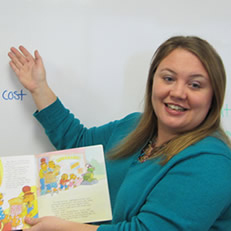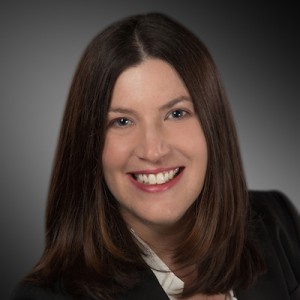School of Education

Graduate Programs
Doctor of Philosophy (Ph.D.) in Economic Education
This Ph.D. program is on moratorium and no longer accepting new students. This page is for students admitted to the program prior to Fall 2021.
An Interdisciplinary Program for Leaders in Economic Education
The doctorate in economic education is designed to train the next generation of leaders in this fast-growing field. It is a joint program of Lerner’s economics department and the School of Education.
The field of economic education focuses on developing and evaluating economic and financial literacy programs and curricula in the K-12 school system, universities and a wide variety of outreach programs.
Traditionally, professionals and scholars in this field have been trained in either economics or education, with little or no formal training in the other area. This is no longer adequate. The increasing complexity and importance of economics in today’s world requires scholars and leaders who have a deeper understanding of both disciplines.
The program draws on the strengths of the University of Delaware’s economics and education graduate programs and on UD’s nationally-recognized Center for Economic Education and Entrepreneurship.
Program Highlights
The curriculum is evenly balanced between coursework in economics and education. The elective options allow you to specialize in one area or the other, depending on your interests and strengths.
The program can be completed in four years following a B.A., although the typical student takes five years to complete the degree. Students with substantial prior graduate training in economics or education can complete the program in three years.
Program Coordinator: Elizabeth Farley-Ripple (Education) and Thomas Bridges (Economics)
Student Spotlight

Erin Yetter
Erin Yetter, the first ever graduate of UD’s doctorate in economic education program, won the Journal of Economics Teaching’s 2016 Best Paper Award for her paper, “Using the Berenstain Bears to Teach Economics in the Elementary Classroom.” She works as an economic education specialist with the Federal Reserve Bank of St. Louis, Louisville Branch where she writes curriculum materials, conducts professional development for teachers and continues to research student learning of economic concepts.
Program Faculty
Graduate students are required to be registered for courses every semester, including the semester in which their degree is conferred, unless they are on an approved Leave of Absence. The program requires a minimum of 45 graduate-level credits.
Economic Theory & Statistical Methods Competency Courses
All students must demonstrate graduate-level competence in economic theory and in statistical methods by completing the following UD courses or by seeking waivers for previously completed coursework. The Department of Economics has sole authority to award waivers for economics courses and the School of Education has sole authority to award waivers for education courses.
- ECON 801 – Microeconomics
- ECON 802 – Macroeconomics
- ECON 803 – Applied Econometrics I
- ECON 804 – Applied Econometrics II
- EDUC 856 – Introduction to Statistical Inference
Required Courses
As indicated above, some students will also take additional courses in economic theory and in statistical methods.
- EDUC 805 – Proseminar in Education I
- EDUC 806 – Proseminar in Education II
- EDUC 850 – Qualitative Research in Educational Settings
- EDUC 812, 826, 865, 873 or 874
- EDUC 840 – Research Colloquium in Education
- 2 EDUC electives
- ECON 820 – Economics of Education Policy
- ECON 829 – Economic Education Curricula
- 2 ECON electives
- Free elective
- ECON/EDUC 964 and 969, dissertation (9 credits)
Sample Student Schedules
- Sample schedule for students with no course waivers
- Sample schedule for students with maximum course waivers (ECON801, 802, 803, 804, EDUC 856)
As a graduate of our program, you will have a wide range of professional and academic employment opportunities, including:
- University departments of economics and education
- Councils and centers for economic education (approximately 200 nationally, most affiliated with universities)
- Education units within regional Federal Reserve banks and other private sector businesses and foundations with an interest in economic and financial education
- School districts and state departments of education
- Education consulting and evaluation firms
Where Our Graduates Work
The doctorate in economic education is a relatively new program at the University of Delaware. Our first graduate completed her doctorate in 2013. She is currently employed as an economic education specialist with the Louisville Branch of the Federal Reserve Bank of St. Louis. Our second graduate completed her degree in 2016 and is on the faculty of the Department of Economics at Michigan State University. A recent 2017 graduate is currently employed in UD’s Center for Economic Education and Entrepreneurship.
Alumni Profile
Lauren Ahlstrom
“The Ph.D. in Economic Education program at UD was a great fit. My coursework and experiences at UD combined my love of economics with my passion for education and provided me with a strong foundation of skills as a scholar in my field. When I was beginning to write the literature review for my dissertation, a professor on my committee gave me some excellent advice. She encouraged me to think of the literature review like a funnel that should begin with a general overview of the research, moving to a narrower focus. As a result, I explored research outside of my primary field of economic education, which gave me a much broader perspective and understanding of the questions I was studying.”




